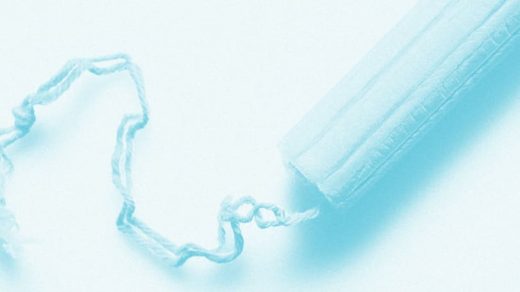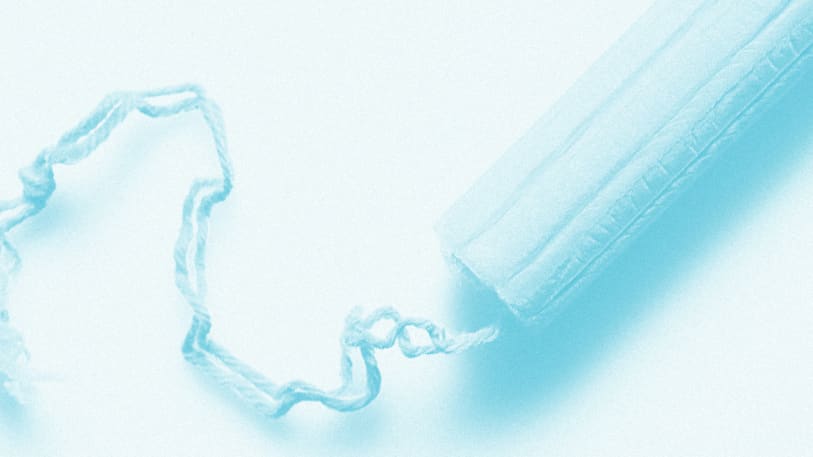A New Wave Of Socially Conscious Tampon Companies Focuses On Organics And Giving Back
When she was 20, Molly Hayward, the founder of new tampon company Cora, had a pap smear that showed pre-cancerous cells in her cervix. For an otherwise healthy young woman, this was a rare and frightening diagnosis, and led her to think more deeply about what in her life might have affected her health. In her research, she came upon an everyday drugstore purchase: tampons. “I found that it has been proven that conventional, non-organic, cotton is heavily saturated in pesticides, herbicides, and fungicides linked to cancer, endocrine disruption, reproductive illness, and infertility,” she says. “Not to mention direct health impacts for the farmers growing it and environmental devastation in the areas they’re applied.”
Because the vagina contains some of the most absorbent and sensitive tissues in the female body, it is especially vulnerable to harmful chemicals. Whether a woman is on her period or not, substances placed in the vagina go directly into a woman’s bloodstream. And, as it turns out, ingredients like rayon, polyester, artificial fibers, dyes, bleach, and other components that are used to produce mass-market tampons may not be what you want to put inside you. Conventional cotton is one of the world’s most sprayed crops, responsible for about 16% of the world’s pesticides, and cotton treated with these chemicals have been found to contain glyphosate, a controversial pesticide potentially linked to cancer.
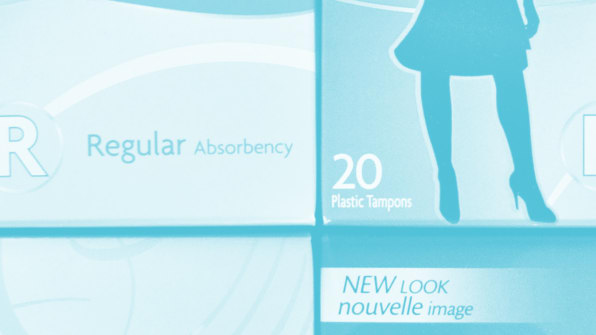
To offer an alternative, a new group of new tampon companies–Cora, along with competitors Lola, Veeda, and Conscious Period–are offering something cleaner and more organic, part of an emerging market for 100% cotton, all-natural and organic tampons and sanitary products. All are founded on the principle that women should know exactly what materials they are putting into one of the most sensitive parts of their bodies each month.
While some major tampon manufacturers list ingredients, FDA regulations don’t require it. “When we found out that feminine care brands aren’t required to disclose exactly what’s in their products, it made us wonder: What’s in our tampons?” says Alex Friedman, cofounder of Lola, whose tampons are 100% organic cotton and come with BPA-free applicators.
To date, there has been only a small amount of investigation and research done on the potentially harmful effects of tampons ingredients. The National Institutes of Health (NIH) only started vaginal research in 1992. “The scientific community hasn’t conducted independent long-term research to confirm for female consumers that it’s okay to put synthetic fibers inside your body for your entire reproductive life,” says Friedman. “But in the absence of robust regulation and information, we’d rather choose something natural made of one simple ingredient.”
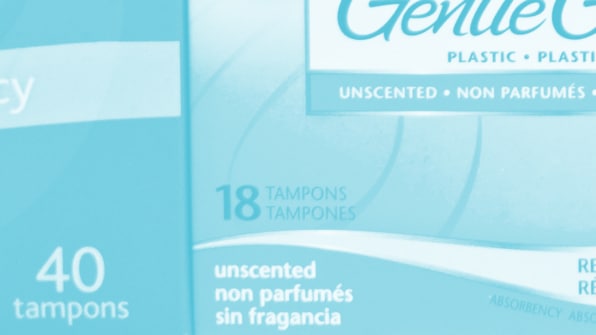
One of the few studies, from Environmental Health Perspectives, found that while synthetic fibers are more absorbent than 100% cotton, they can also, for that reason, be more likely to cause toxin production from menstrual bacteria, and potentially cause toxic shock syndrome. “Not only does organic cotton minimize the chemicals entering the body, but it is also a less damaging, and more sustainable choice for the environment,” says Conscious Period’s cofounder Margo Lang.
All four companies also each feature buy-one-give-one models that deliver sanitary products to women and girls in need in India, Kenya, and the U.S. Lack of sanitary products can keep girls from being able to go to school or even leave the house. “Having access to safe and effective feminine care affects not only a girl’s or a woman’s health, but in many cultures, it impacts if she is allowed to go to school, which in turn impacts her economic future. The ripple effects are astounding,” says Veeda founder Adrian Forsyth.
This year, Lola is on track to donate nearly half a million products to women domestically. “Millions of low-income women are forced to choose between buying menstrual products for themselves or other essentials for their families each month. Feminine care items are among the most requested at homeless shelters, yet are least often donated,” says Friedman.
Despite the high costs of organic cotton, all four companies are working to keep costs down: Conscious Period’s tampons are priced at $8.50 for a box of 20, not too much higher than the mainstream brands; Veeda’s retail for $5.99 to $8.99 for a box of 16. Cora’s pricing model, which varies from $10-$12 per month for a subscription on repeat delivery, factors in not just the tampons, but the travel cases that come along with them.
All of the brands producing these organic products assert that the feminine-care industry is an under-researched and under-regulated market with a lack of transparency, since mass-market manufacturers aren’t required to list the ingredients on the box.
But Iffath Hoskins, clinical associate professor at the Department of Obstetrics and Gynecology at NYU Langone Medical Center, says that women generally have healthy, stable bacterial environments within the vagina, and because it is naturally so biologically balanced, it can usually protect itself against a number of harmful infections. So, even though vaginal mucosa is highly absorbent, the use of synthetic materials such as rayon, polyester, plastics, is generally harmless.
“There are certain conditions that might make a woman more vulnerable to a negative reaction, like certain medications or pre-existing illnesses. In most cases, however, the amount absorbed by the vagina, because of the size of a tampon and the short duration of usage, isn’t very dangerous,” she says, adding that right now, we can’t definitively know whether or not organic or all-natural products have long-term harmful effects, because they haven’t yet been tested over an extended period of time.”
But Rachel Carlton Abrams, an integrative medicine practitioner who works with women to maximize and improve their sexual and reproductive health while minimizing the negative health effects of environmental factors, says that “it is completely valid to worry about known endocrine disruptors (chemicals that can interfere with the way your hormonal system typically works), such as parabens, pesticides, plastics, and petrochemicals in an area as absorbent as the vagina, even if we don’t have specific studies to say so.”
“We are not going to have ‘proof’ that each of these chemicals causes damage when used in feminine-care products, because the FDA doesn’t require that testing for them to be used,” she says. “That does not, however, mean that they are safe. The U.S. does not require ‘proof of safety’ for the use of chemicals in topical products, even though most chemicals can be absorbed as well from the vagina as they can from the stomach.”
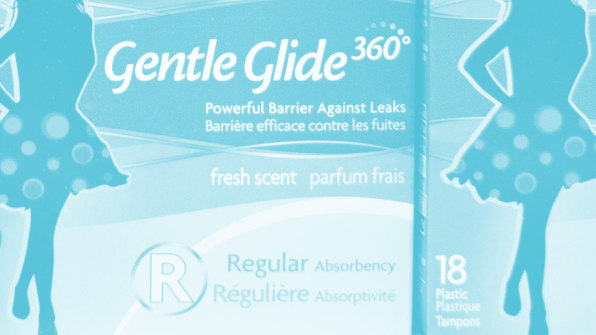
So how high on your list of things to worry about should you put traditional, mass-market tampons? Abrams says that it’s as important to buy organic, non-bleached tampons as it is to buy organic fruits and vegetables (perhaps more so) and it just depends on how concerned you are with the evidence that we do and don’t have.
“There has been a systematic ignoring of the effect of chemicals in topical products, beauty products, soaps, lotions, and feminine-care products, and a lack of research is not evidence of safety,” she says. “It is similar to BPAs being used in baby bottles and infant chew toys for many years, prior to the FDA taking it off the market… We have to prove chemicals harmful before removing them from the marketplace.”
Hoskins feels that it ultimately depends on a woman’s personal choice, since the numbers she’s seen thus far indicating how the chemicals in tampons affect a woman’s body are “too small, and the information is relatively new.”
“Nothing in medicine is zero occurrence or 100% occurrence…. The best option is for every woman to choose whatever type of tampon feels best for her peace of mind, pocket book, ease of use, and ready availability.”
If nothing else, the social-good component of these natural, organic products—and the feeling that you very well may be choosing low-risk as opposed to no-risk—may be enough to tip the scales and disrupt the flow of the mass market brands.
Correction: We’ve updated this article to correct the number of tampons in each Veeda box.
Helaina Hovitz is an editor, journalist, and author of After 9/11. She has written for The New York Times, Salon, Glamour, Teen Vogue, VICE, Newsweek, Women’s Health Reader’s Digest, Forbes, The New York Observer and many others. Visit her on Twitter, Facebook, or HelainaHovitz.com.
Fast Company , Read Full Story
(54)

